
As we usher in the new year, many individuals and families take a moment to reflect on their lives, accomplishments, and aspirations. One of the most significant dreams many people hold is the desire to own a home. The journey to homeownership can be both exciting and daunting, filled with challenges and opportunities.
If owning your own home is on your list of goals for 2025, you are not alone. By setting meaningful New Year’s resolutions tailored to homeownership, you can turn that dream into a reality.
Here, we explore ten achievable resolutions that will help pave the way to owning your dream home.
Improve Your Credit Score
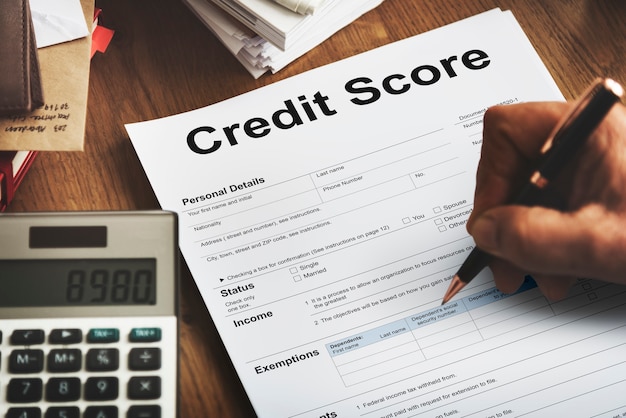
When it comes to securing a home loan, your credit score plays a pivotal role. Lenders use this score to gauge your creditworthiness, which can significantly influence the interest rate offered on your mortgage.
The higher the credit score, the lower the mortgage
A higher credit score can lead to lower monthly payments and substantial savings over the life of the loan. Start the new year by obtaining a copy of your credit report.
Review it carefully for any inaccuracies or errors that could be dragging down your score. If you find mistakes, dispute them promptly.
Pay debts on time and observe credit utilization ratio
To boost your credit score, focus on paying down existing debts, especially those with high interest rates, such as credit card balances.
Commit to making timely payments, as payment history is one of the most significant factors affecting your score.
Additionally, try to keep your credit utilization ratio below 30%. By consistently managing your credit responsibly, you will not only improve your score but also enhance your chances of securing a lower monthly mortgage payment.
Save for a Down Payment
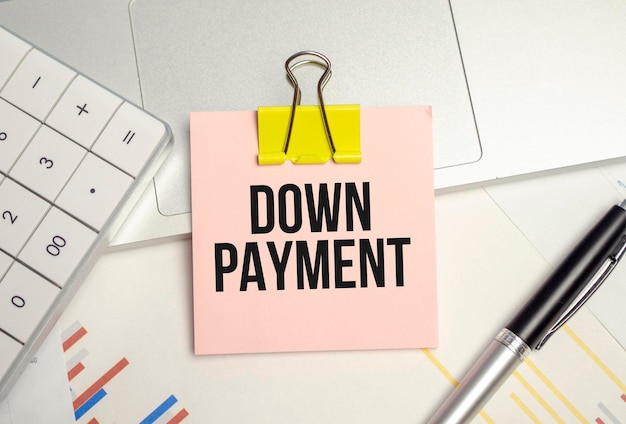
One of the most substantial hurdles in the home-buying process is saving for a down payment. The amount you need can vary depending on the type of mortgage you choose and the price of the home.
While conventional wisdom suggests aiming for a 20% down payment to avoid private mortgage insurance (PMI), various loan programs allow for lower down payments.
Regardless of the percentage, having a significant amount saved will reduce your overall loan amount and monthly payments.
Set a specific timeline and explore alternative income sources
Set a specific savings goal and timeline for your down payment. Break this goal down into smaller, manageable monthly savings targets. Evaluate your current budget to identify areas where you can cut back on non-essential expenses, such as dining out, subscriptions, or impulse purchases.
Consider creating a dedicated savings account specifically for your home purchase to keep these funds separate and encourage disciplined saving.
Additionally, explore alternative income sources, such as part-time work or freelance opportunities, to help bolster your savings.
Understand Your Debt-to-Income Ratio

Your debt-to-income (DTI) ratio is another key factor that lenders consider when assessing your mortgage application. This ratio compares your monthly debt payments to your gross monthly income, providing lenders with insight into your financial health.
A lower DTI ratio indicates that you have a manageable level of debt relative to your income, making you a more attractive candidate for a mortgage.
How do you improve your DTI ratio?
To improve your DTI ratio, take proactive steps to reduce your monthly debts.
Start by creating a list of all your debts, including credit cards, student loans, car payments, and personal loans. Focus on paying down high-interest debts first, while making at least the minimum payments on others. Additionally, consider consolidating debts or refinancing high-interest loans to lower your monthly payments.
By decreasing your overall debt burden, you can improve your DTI ratio, making it easier to qualify for a mortgage with favorable terms.
Find the Right Real Estate Agent

Navigating the housing market can be overwhelming, especially for first-time buyers. A good real estate agent can be an invaluable asset in your home-buying journey. They can help you find the right property, negotiate the best price, and guide you through the complexities of the buying process.
What qualifies as a good real estate agent?
When searching for a real estate agent, look for someone with a strong track record and extensive knowledge of your target market. Seek recommendations from friends, family, or colleagues who have recently bought or sold homes.
Once you have a list of potential agents, don’t hesitate to interview them to assess their experience, approach to home buying, and compatibility with your personality and needs.
A good agent will listen to your preferences, offer insights into the market, and advocate on your behalf throughout the buying process.
Budget for Closing Costs
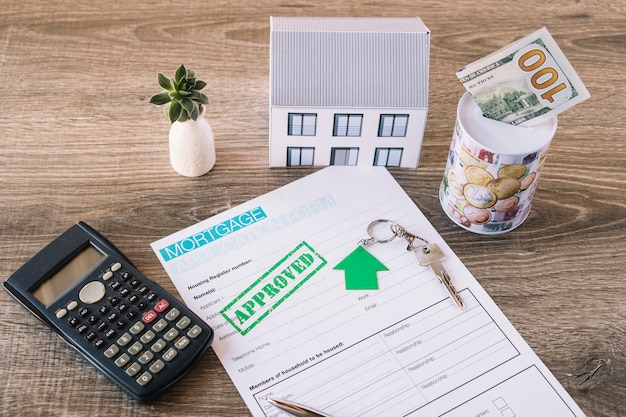
Many homebuyers overlook the importance of budgeting for closing costs, which can significantly increase the overall cost of purchasing a home.
Closing costs can range from 2% to 5% of the home’s purchase price and include a variety of fees, such as appraisal fees, title insurance, attorney fees, and more.
Incorporate Estimated Closing Costs into Budget
To prepare for these expenses, include estimated closing costs in your overall home-buying budget. Start by researching the typical closing costs in your area and factor this into your savings plan. Additionally, remember that you may be able to negotiate with the seller to cover some or all of these costs, which can save you thousands upfront.
Being financially prepared for closing costs will help you avoid unexpected financial strain as you approach the final steps of your home purchase.
Decide How Many Bedrooms You Need
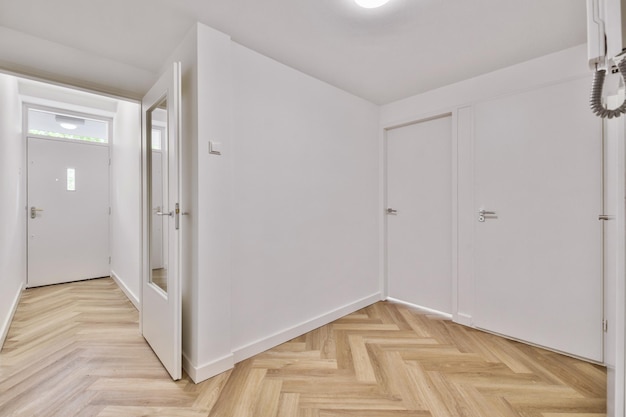
When searching for your dream home, it’s essential to have a clear understanding of your space requirements.
Consider your current lifestyle and future plans when determining how many bedrooms you need. Are you planning to start a family? Do you work from home and need a designated office space? Reflect on your current and future needs to ensure that your new home meets your requirements.
Think about flexibility
When evaluating potential properties, think about flexibility. If you anticipate changes in your living situation, such as welcoming new family members or needing to accommodate guests, consider homes with additional rooms or flexible spaces that can serve multiple purposes.
Being clear about your needs will help streamline your search and prevent you from being swayed by homes that exceed your budget or don’t meet your essential criteria.
Keep Your Bank Statements Organized
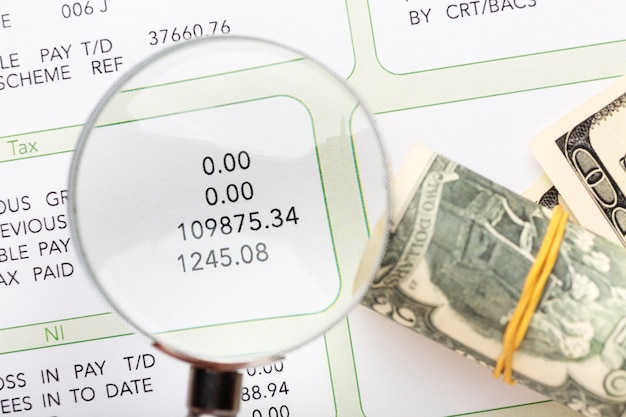
When applying for a mortgage, lenders will request several months of bank statements to verify your income, savings, and overall financial health. Keeping these records organized and readily accessible can significantly expedite the approval process.
Establish a filing system
Start by establishing a filing system for your financial documents, whether digital or physical. Ensure your bank statements reflect consistent deposits and responsible financial management. Avoid large, unexplained deposits or withdrawals, as these can raise red flags for lenders.
By maintaining organized records, you’ll be better prepared to provide the necessary documentation when it’s time to apply for a mortgage, which can help you secure a loan more quickly.
Address Home Maintenance Issues

If you’re already a homeowner, it’s crucial to keep your property in good condition. Make a resolution to address any outstanding maintenance issues, like a clogged dryer vent, leaky roof, or faulty plumbing.
Neglecting home maintenance can lead to more significant problems down the line, potentially decreasing your home’s value and leading to costly repairs.
Create a schedule
Create a maintenance schedule that outlines regular upkeep tasks, such as checking the HVAC system, cleaning gutters, and inspecting the roof for damage. Set aside time each month to address these tasks, and prioritize any pressing repairs.
By staying on top of home maintenance, you preserve your property’s value and create a more comfortable and enjoyable living environment for yourself and your family.
Set a Realistic Home Buying Timeline

Buying a home is a significant financial commitment that requires careful planning and consideration. To keep yourself focused and motivated, establish a realistic timeline for your home-buying journey.
Consider factors such as saving for a down payment, improving your credit score, and researching neighborhoods and properties.
A Step by Step Timeline
Break your timeline into manageable steps and set specific deadlines for each stage of the process. For example, you might set a goal to improve your credit score within six months, save a certain amount for your down payment within a year, and start house hunting by the end of 2025.
Celebrate each milestone you achieve along the way, as this will help keep you motivated and remind you that you are making progress toward your goal of homeownership.
Stay Informed About the Housing Market

The housing market is constantly evolving, influenced by economic conditions, interest rates, and other factors. Staying informed about market trends in your desired area will empower you to make educated decisions throughout the home-buying process.
Engage with real estate resources for insights
Subscribe to real estate newsletters, follow market reports, and engage with local real estate professionals to gain insights into pricing and availability. Attend open houses to get a feel for different neighborhoods and the types of homes available.
The more knowledgeable you are about the housing market, the better equipped you will be to identify opportunities and make confident choices when it comes time to purchase your new home.
Position Yourself to Success this 2025

By setting and following these New Year’s resolutions for homeownership, you can position yourself for success in 2025. Whether it’s improving your credit scores, saving diligently for a down payment, or finding a skilled real estate agent, each step you take brings you closer to achieving your dream of owning a home.
Remember, preparation and perseverance are essential to navigating the home-buying process. With determination and thoughtful planning, you’ll be well on your way to securing your dream home.
As the new year unfolds, embrace the possibilities that lie ahead. Take the time to reflect on your goals, make a plan, and commit to taking action in 2025. Homeownership is not just a financial investment; it’s a chance to create a space that reflects your values, dreams, and aspirations.
Here’s to new beginnings, the fulfillment of your homeownership goals, and a prosperous year ahead! Happy New Year!

Celebrate Life’s Milestones in Camella!
House and Lot & Condominium for Sale in the Philippines


